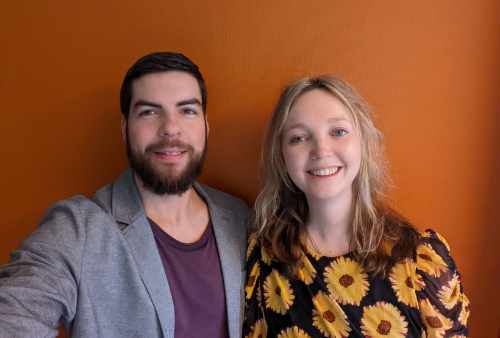As a coaching practice that is part of the Guild of Guides (of The Netherlands), it’s imperative to follow the code of conduct that has been cooperatively made. This way, coaches like us are held to a standard that ensures a safe and comfortable experience for people coming to us for coaching, assisted by psychedelics.
Here is our commentary on the Guild of Guides Code of Conduct – guide requirements section – to help clarify the rules and give our perspective on some of the thoughts behind them.
See our previous post on the ‘Participant’s Safety’ section.
Guide Requirements
- Guides have extensive personal experience with altered states of consciousness.
- Does a psychedelic therapist need experience themselves with altered states of consciousness? Most arguments fall on the side of yes. It allows them to ‘know’ the landscape. Thus, better helping participants coming for guidance. Still, most coaching skills are general skills unrelated to psychedelics. We have extensive experience with psychedelics, numbering over 100 sessions. Still, we wouldn’t be opposed to someone within the ‘regular’ healthcare system to help patients if they couldn’t have a psychedelic experience themselves (e.g. because of medical reasons).
- Guides are well-informed about contraindications for psychedelic experiences and are aware of substance/medication/supplement interactions. They are familiar with the wide range of effects that can be caused by psychedelic substances and understand how to spot and work with the various experiences that clients might go through during their journey, including challenging experiences.
- This section highlights two different aspects, which can be treated separately. First, as guides, we should have basic knowledge about interactions with other drugs. Yet, at the same time, we can’t be in the role of a doctor (we simply don’t have that experience). Usually, it’s easiest not to accept clients currently taking medications. We understand that some guides might differ slightly in that stance, though we would only help people taking medications if we know they are seeing a healthcare worker who is informed about the intended psychedelic use and can help their patient.
- Second, we should be aware of the challenging experiences one can have on psychedelics, and the days and weeks after taking them. This is something we communicate early and often to clients coming for coaching (partly to combat the rose-coloured perspective shaped in the media).
- Guides aspire towards inclusion and to challenge prejudices.
- We don’t discriminate, simple as that.
- Guides have put proper emergency protocols in place to navigate mental, spiritual, and physical health crises before, during and after experiences.
- Due to nearly a decade working in healthcare (Lotte), we know how to refer out. In time, we hope to provide fully written out emergency protocols that we can share with other guides.
- Guides know their own limitations and avoid working with clients that the guide does not have compassion for or lacks the skills and experience to support.
- The introduction call with participants is a moment where we can get to know the individual behind the question. A coaching package might not be the right thing for them, and for us to guide them.
- Guides demonstrate good self-care and invest in their own mental, physical, and spiritual wellbeing and hygiene.
- Both Lotte and Floris have a regular mental and physical health practice. Since a few months this is made significantly easier by moving out of the city and spending a lot of time in our garden.
- Guides do not make false or exaggerated claims about psychedelics in their advertisement. Guides are sincere and forthcoming about what they can and cannot offer in terms of therapy and credentials and create clarity around the intentions of a session or retreat. Guides do not actively target vulnerable or desperate groups and individuals.
- Psychedelics are not a panacea, we know the transformative nature of psychedelics, but also respect the limitations and risks inherent in their use.
- Guide members show high integrity and awareness around claims and practice caution when talking about personal beliefs and convictions. They speak realistically about the nature of transformation. Guides aspire and act to avoid harmful dynamics that can arise around (charismatic) leaders, positions of power, and heightened suggestibility under the influence of a psychedelic substance.
- We are guides, nothing more than that. The person coming for the session is the person in charge, we (just) bring our own knowledge to the table to help them have the most optimal experience for the situation.
- Guides that operate in the Netherlands have an understanding of and adhere to the Dutch laws, customs, and the different regulations that may apply to them and their work.
- Currently, psilocybin-containing mushrooms are the only legal option in the Netherlands. Other ‘research’ chemicals one can procure are ‘not for human consumption’ and it’s an area we’re staying away from. We also don’t offer therapy, we offer coaching. We believe these are two areas to be very clear about.
- Guides have a basic understanding of power dynamics and therapeutic processes, even if they are not trained as therapists. Guides commit themselves to ongoing training and education, engage in (peer) supervision, and/or mentoring.
- We both come to this work from slightly different perspectives. Floris is learning a lot about coaching, whilst Lotte is diving deeper into the aspects of psychedelics she isn’t too familiar with yet. We believe training is one of the best investments one can make, and besides each other we plan to engage in supervision sessions and mentoring relationships with others in the space.
- Guides never exceed a 4:1 ratio of participants to guides in group experiences and 2:1 clients to guides in a private session.
- We currently only guide 1:1 sessions.
- External guides, third parties and volunteers that work under the auspices of a member guide or organization also subscribe to this code.
- We currently don’t work together with volunteers, external guides, and third parties.
The Guild of Guides’ code of conduct provides an ethical framework for psychedelic guides in the Netherlands. As members, we aim to uphold these standards to ensure safe, compassionate, and transformational experiences for our clients. While views may differ on some specifics, the core principles of integrity, inclusivity, education, realistic claims, and dedication to participant wellbeing resonate deeply with our own values as guides.
We are committed to honouring the seriousness and sacredness of these experiences by approaching our role with care, humility and reverence. Our goal is to walk alongside participants with presence and equip them with skills to integrate their journeys in empowering ways. By reflecting on these guidelines and holding ourselves accountable, we hope to contribute to the responsible emergence of psychedelic-assisted practices that benefit individuals and society.
The path ahead will require patience, wisdom and ongoing dialogue as we navigate uncharted territory together.


